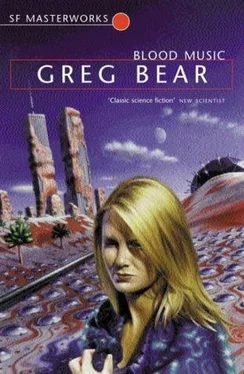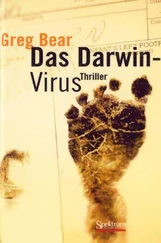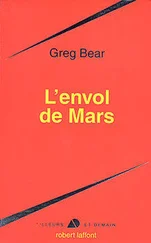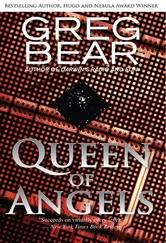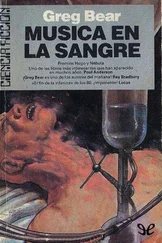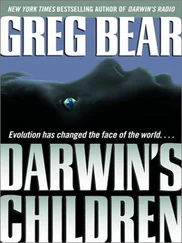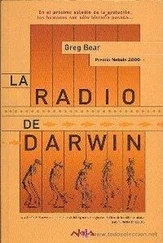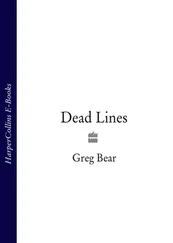After running a brief inventory on the equipment, he began refreshing his memory on procedures by reading the manuals. A few hours later he tired of that and made an entry in his computer notebook, knowing that it was not private, that it would be read now or later by Pharmek and government personnel-psychologists perhaps, the doctors certainly. Everything about him was important now.
There is no biological reason I am aware of why the Earth has not already succumbed. The plague is versatile, can transform any living thing. But Europe remains free—except for scattered incidents—and f doubt it is because of their extreme measures. Perhaps the answer to why I am atypical of recent victims—why I am undergoing changes more like Vergil Ulam’s—will explain this other mystery, as well. Tomorrow I will have the experts take blood and tissue samples from me, but not all of the samples will be removed from the chamber. I will work on some of them myself, particularly blood and lymph.
He hesitated, fingers over the keyboard, and was about to continue when Paulsen-Fuchs buzzed for his attention from the viewing chamber.
“Good afternoon,” Bernard said, spinning his chair around. As usual now, he was naked. A camera in the upper right hand comer of the viewing chamber window continually fed his body contours and characteristics into the computers for analysis.
“ Not a good afternoon, Michael,” Paulsen-Fuchs said. His long face was even longer and more haggard than usual. “As if we do not have problems enough, now we face the possibility of war.”
Bernard stepped close to the window and watched the executive shake out a British newspaper. The headlines sent a queasy thrill down his spine.
RUSS NUKE PANAMA
“When?” he asked.
“Yesterday afternoon. The Cubans reported a radioactive cloud advancing across the Atlantic. NATO military satellites confirmed the hot-spot I suppose the military knew ahead of time—they must have their seismographs or whatever but the press only found out this morning. The Russians used nine or ten one-megaton bombs, probably submarine-launched. The whole canal area is…” He shook his head. “Nothing from the Russians. Half the people in Germany expect we will be invaded within the week. The other half are drunk.”
“Any word on the continent?” That was how they had come to refer to North America in the last two days: the continent the real center of the action.
“Nothing,” Paulsen-Fuchs said, slamming the paper on the viewing chamber table.
“Do you—the Europeans—expect the Russians to invade North America?”
“Yes. Any day now. Eminent domain, or whatever you English-speakers call it. Right of salvage.” He began to chuckle. “I am not their lawyer, but they will think of the correct words, and justify themselves in Geneva, if they haven’t bombed Geneva by then, too.” He stood with his hands spread on the table, around the paper. “No one is prepared to discuss what will happen to them if they do invade. The U.S. government in exile postures and threatens with its European-based troops and navy, but Russia does not take them seriously. Before your call last month, I had planned to go on my first vacation in seven years. Obviously, I cannot go on vacation,” he said. “Michael, you have brought something into my life that may kill me. Pardon my self-centered moment.”
“Understood,” Bernard said quietly.
“Old saying in Germany,” Paulsen-Fuchs said, staring at him. “‘It is the bullet you don’t hear that gets you,’ Does that have meaning for you?”
He nodded.
“Then work, Michael. Work very hard, before we are all dead by our own hand.”
At the security desk Suzy found a long, powerful flashlight—very fancy, black like binoculars with a beam that could be spread wide or focused in by turning a knob—and set about exploring the concourse and lower-level walkway between the two towers. She spent some time trying on clothes in a boutique, but she couldn’t see herself very well in the flashlight beam and that quickly palled. Besides, it was spooky. She made a half-hearted effort to see if others like herself had entered the building, and even ventured briefly into the Cortlandt Street subway station. When she was satisfied that the lower floors were empty—except for the ubiquitous piles of clothes—she returned to her Candlelight Room, as she had dubbed it, and planned her ascent.
She had found a chart of the north tower and now traced her finger along the plan of the lobby and lower floors. Flipping back each sheet of the thick manual, she realized that the building did not have long stairwells, but stairs at different places on each floor.
That would make her climb even more difficult. She found the door that led to the first stairway on the chart and walked to it. It was locked. Doubling back to the security desk, she nudged a pile of uniform with her foot and revealed a massive ring of keys on a retractable cord. She pulled the belt from the loops, noticing a bra in the clothing, and removed the keys. “Excuse me,” she whispered, rearranging the clothes into an approximation of their former state. “I’m just going to borrow them. I’ll be right back.” She caught herself and bit the fleshy part of her thumb until she left vivid tooth marks. Nobody there, she told herself. Nobody anywhere. Just me, now.
It took her a few minutes of slowly reading the labels on the keys to find the one that opened the door to the stairwell. Beyond the door, the stairs were utilitarian concrete and steel. On the next floor they opened onto a hallway. She peered around the corner and down a white corridor leading past doors to various offices, some marked and some merely numbered. A quick look into several of the offices told her little.
“Okay,” she told herself. “It’s nothing but a hike, a long hike. I’ll need food and water.” She looked down at her loafers and sighed. They’d have to do, unless she decided to borrow a pair of empty shoes from—
She didn’t relish that idea. In the ground floor lobby, she took a plastic shopping bag from behind the newsstand and filled it with lightweight foods from her cart. Water was more difficult; the plastic jugs were too bulky to hang comfortably from her belt, but she decided there was little alternative. And if she found water still available on the upper floor-there had to be water-coolers—she could always leave the jugs behind.
She began her climb at eight thirty in the morning. It was best, she thought, to climb steadily ten floors and then rest, or explore and see what was visible from that level. That way, she might reach the top by the end of the day.
Humming “Michelle,” she went from flight to flight, hands gripping the steel rails, passing through door after door. She tried to establish a rhythm. Kenneth and Howard had taken her hiking in Maine once and she had learned that every hiker had a certain rhythm. Following that rhythm made the trail a lot easier; breaking the rhythm to follow someone else made it much more difficult.
“Nobody to follow,” she told herself on the fourth level. She tried singing “Michelle” again, but the rhythm didn’t match her steps, so she whistled a march by John Williams. On the ninth level she began to feel winded. “One more.” And on the tenth, she squatted with her back against the wall of the elevator lobby, staring at the doors. “Maybe this wasn’t a good idea.” But she was stubborn—her mother had always said so, somewhat proudly—and she would persist “Nothing else to do,” she said, her voice hollow in the deserted lobby.
When her breathing eased, she stood and arranged the bottle of water and the sack of food. Then she crossed to the next door and opened it. Up another flight. Another lobby, more hallways, more offices. She decided to investigate one of the restrooms.
Читать дальше
